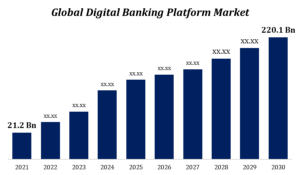The Ever-Evolving Fintech World: Key Trends Shaping the Future of Finance
The Ever-Evolving Fintech World: Key Trends Shaping the Future of Finance
The financial technology (fintech) sector continues to revolutionize the financial landscape, driving significant changes in how businesses and consumers interact with money. As we move deeper into 2024, several key trends are emerging that promise to reshape the fintech world. These trends are not just about new technologies but also about the broader impact on society, regulation, and global finance. Here’s a closer look at the most significant trends currently defining the fintech world.
1. Central Bank Digital Currencies (CBDCs): A Global Movement
Central Bank Digital Currencies (CBDCs) are rapidly gaining momentum as governments and central banks across the world explore the potential of issuing their own digital currencies. Countries like China, with its Digital Yuan, are leading the charge, while others like the European Union and the United States are in the exploratory stages. CBDCs promise to enhance the efficiency of payment systems, increase financial inclusion, and provide governments with more control over monetary policy. However, they also raise concerns around privacy, security, and the potential for government overreach.
2. The Rise of Decentralized Finance (DeFi)
Decentralized Finance, or DeFi, continues to grow at an unprecedented pace, challenging traditional financial institutions. DeFi platforms use blockchain technology to offer financial services—such as lending, borrowing, and trading—without the need for intermediaries like banks. This democratization of finance is attracting a broad user base, particularly among those who are underserved by traditional banks. However, the rapid growth of DeFi also brings challenges, including regulatory scrutiny and the need for better security measures to protect users from hacks and fraud.
3. Artificial Intelligence in Finance: Enhancing Decision-Making
Artificial Intelligence (AI) is becoming increasingly integral to the fintech sector. From AI-driven chatbots that enhance customer service to sophisticated algorithms that predict market trends, AI is transforming how financial services are delivered. The use of AI in risk management, fraud detection, and personalized financial advice is also on the rise, offering businesses and consumers smarter, more efficient ways to manage their finances. As AI technology advances, its role in fintech is expected to expand even further, leading to more innovative applications.
4. Sustainable Finance: Fintech’s Role in ESG
Environmental, Social, and Governance (ESG) factors are becoming critical in financial decision-making, and fintech companies are playing a crucial role in this shift. Fintech platforms are providing tools for investors to measure and track ESG metrics, enabling more informed and socially responsible investment choices. Additionally, fintech innovations are facilitating the flow of capital into sustainable projects, aligning with the growing demand for investments that have a positive environmental and social impact.
5. The Continued Disruption of Traditional Banking
Fintech startups are continuing to disrupt traditional banking by offering more convenient, customer-centric services. Neobanks—digital-only banks with no physical branches—are gaining popularity, particularly among younger consumers who prefer mobile-first banking solutions. These fintech-driven alternatives are pushing traditional banks to innovate and adopt new technologies to stay competitive. The competition is fierce, and the lines between fintech and traditional banking are becoming increasingly blurred as partnerships and collaborations between the two sectors grow.
6. RegTech: Navigating the Complex Regulatory Landscape
As the fintech sector expands, so does the regulatory scrutiny surrounding it. Regulatory Technology, or RegTech, is emerging as a vital component of the fintech ecosystem, helping companies navigate the complex web of financial regulations. RegTech solutions leverage AI, big data, and blockchain to streamline compliance processes, reduce the risk of regulatory breaches, and enhance transparency. As regulations evolve in response to fintech innovations, the role of RegTech will only become more critical.
7. Blockchain Beyond Cryptocurrency
While blockchain technology is often associated with cryptocurrencies, its applications extend far beyond digital currencies. In fintech, blockchain is being used to improve everything from cross-border payments to supply chain financing. Its potential to enhance transparency, reduce fraud, and lower costs makes it a powerful tool for financial institutions and fintech companies alike. As more use cases for blockchain technology emerge, its role in the fintech world is set to expand significantly.
8. The Growth of Embedded Finance
Embedded finance—integrating financial services into non-financial platforms and apps—is becoming a major trend in the fintech space. By embedding payment solutions, lending services, or insurance products directly into e-commerce platforms or other digital services, companies can offer a more seamless experience for their customers. This trend is blurring the lines between industries and creating new opportunities for fintech companies to partner with businesses across various sectors.
The fintech world is evolving at a rapid pace, driven by technological advancements, changing consumer preferences, and a shifting regulatory environment. These trends are not just shaping the future of finance but are also redefining how we think about money, investments, and financial services. As we look ahead, it’s clear that the fintech sector will continue to be a hotbed of innovation, offering new opportunities and challenges for businesses and consumers alike. Staying ahead of these trends will be key for anyone looking to thrive in the ever-evolving fintech landscape.


































